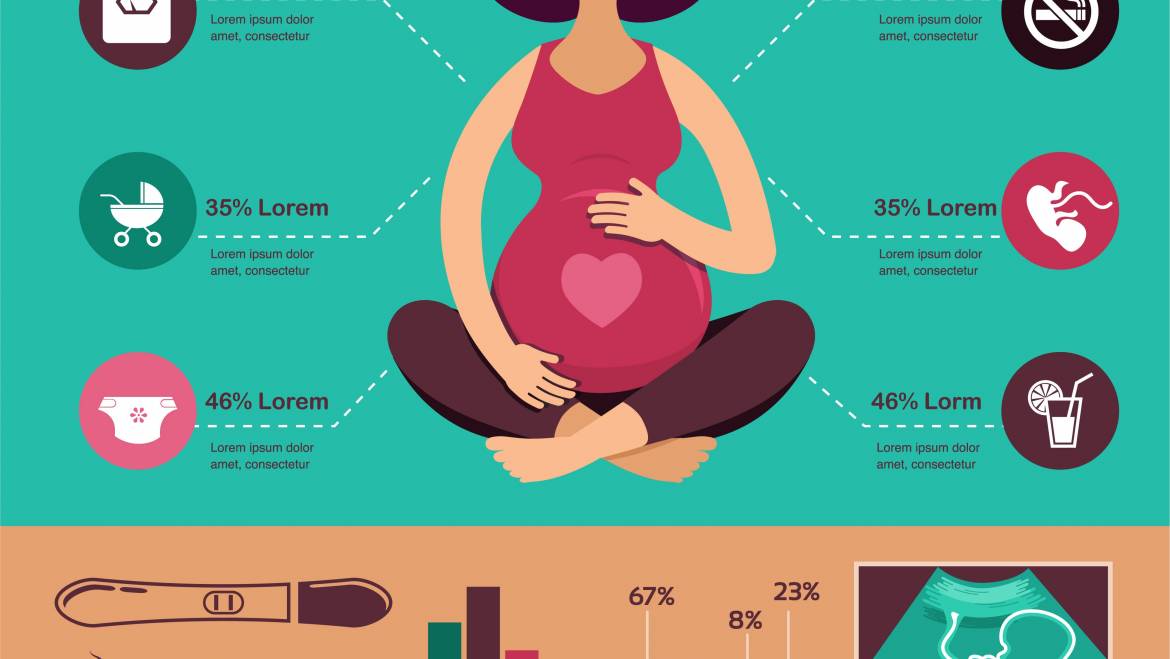Protein is one brainy and tasty baby-maker. Find out good sources of protein which you should incorporate in your diet during pregnancy.
Protein is the leading choice among all the nutrients these days, getting praises from many thriving dieters. It’s a well-known fact that diets meant for weight-loss are absolutely unsafe for expecting moms and their babies, you should welcome protein diet during pregnancy on a deeper level for the brain power behind the good looks.
Protein is a long chain of amino acids that put up your baby’s charming face and every cell below it. After 37 weeks of pregnancy, your baby’s brain, in particular, requires these nutrients to renovate itself into the incredible organ that will help your baby breathe, talk, walk, and other essential activities.

Why is protein important during pregnancy?
It’s very crucial to understand the importance of maintaining a complete diet during pregnancy. Since your baby’s growth rests completely on your health, it’s critical you deliver the proper nutrients your body needs to support your developing baby; one of the most significant nutrients your baby needs is protein. You need to get about 25 grams of protein in addition to what you were taking before.
How much protein do I need?
Daily requirements of proteins vary by total weight and physical activity. For example, a lady whose exact weight is 140 pounds and takes on moderate physical activity has a requirement of 89 grams of protein when not pregnant and 114 grams of protein when pregnant. You can use a protein calculator to determine how much protein you need according to your weight and level of physical activity.
Why is protein so important?
On the surface, protein can help you maintaining a lean body. Although you anticipate and are even prompted to put on weight during pregnancy, acquiring too much weight may make you prone to various health diseases. Good sources of protein will keep you satiated, shrinking the need to eat extra, empty calories. It will also help you put on weight in the form of lean muscles rather than just fat. Eating a diet rich in protein helps to soothe blood sugar levels.
Proteins also play a vital role in the growth of hair and fingernail along with the regulation of digestion and hormone secretion. And during pregnancy, proteins are provide the very same cell-building tasks for your growing baby.
Your baby’s brain starts developing in the third trimester of your pregnancy. Proteins rich in omega-3 fatty acids like DHA render the nutrients obligatory for proper cognitive growth and activity. Consequently, it’s of more importance than ever to get an adequate amount of protein as a part of your pregnancy nutrition during those last few months of pregnancy.
Without sufficient protein in your diet, you are more at risk of contracting an infection, suffering from weight loss, and possibly retaining severe amounts of fluid. Consuming the proper amounts of protein during pregnancy is vital to the health of your baby as it has also been linked to a lower risk of neonatal deaths and birth defects.
Here are some great sources of protein:
- Dairy
1/2 cup ricotta cheese: 14 g
1/2 cup low-fat cottage cheese: 12 g
8 ounces low-fat yogurt: 9 to 12 g
1 ounce Parmesan cheese: 11 g
1 ounce Swiss cheese: 8 g
1 cup low-fat milk: 8 g
1 ounce cheddar cheese: 7 g
1 ounce mozzarella cheese: 6 g
One large fresh egg: 6 g
- Beans, nuts, legumes
1/2 cup raw tofu (firm): 20 g
1 cup cooked lentils: 18 g
1 cup canned black beans: 15 g
1 cup canned kidney beans: 13 g
1 cup canned garbanzos: 12 g
1 cup canned pinto beans: 12 g
2 tablespoons smooth peanut butter: 8 g
1 ounce dry roasted peanuts: 7 g
1 cup light plain soymilk: 6 g
- Meat, poultry and fish
Note that 3 ounces of cooked meat or fish is about the size of a pack of cards.
1/2 roasted chicken breast (without skin): 27 g
3 ounces baked or grilled sockeye salmon: 23 g
3 ounces baked or grilled trout: 23 g
3 ounces lean beef hamburger patty, broiled: 21 g
Conclusion:
Protein requirements for pregnant women can vary from as little as 40 grams to as much as 70 grams per day, depending on how much you weigh. If you don’t eat meat, you can include dairy, eggs, beans, or soy products in your pregnancy diet to meet your daily protein requirement.



